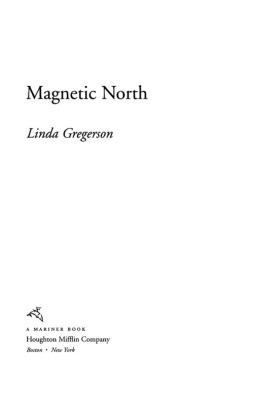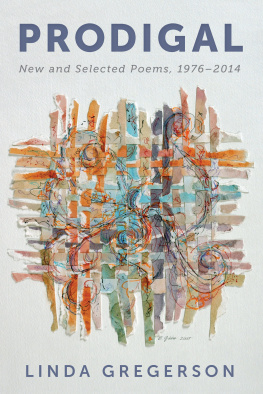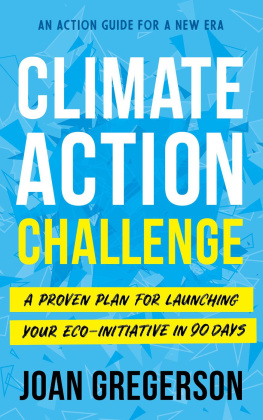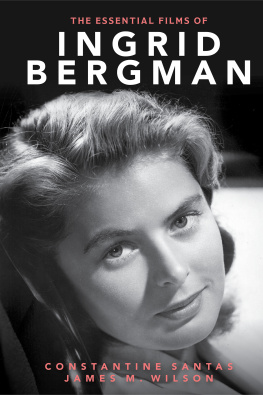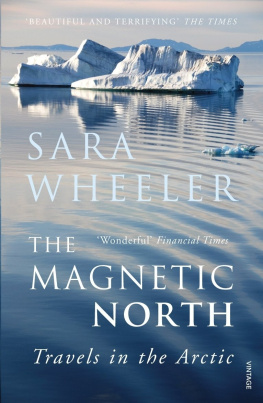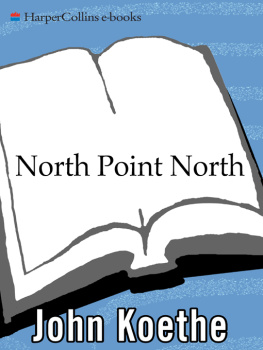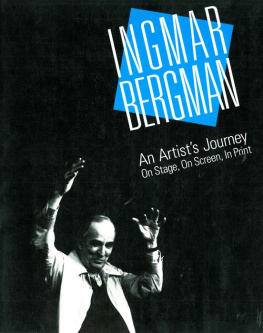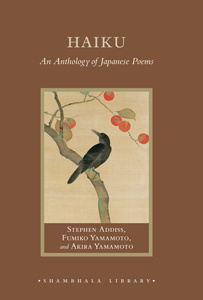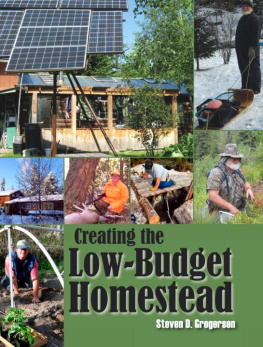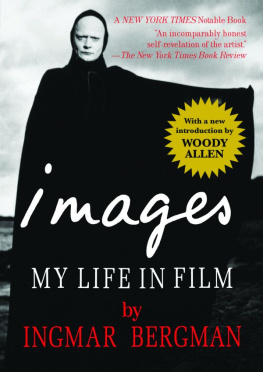A MARINER BOOK
Houghton Mifflin Company
Boston New York First Mariner Books edition 2008
Copyright 2007 by Linda Gregerson
All rights reserved For information about permission to reproduce selections from
this book, write to Permissions, Houghton Mifflin Company,
215 Park Avenue South, New York, New York 10003. www.houghtonmifflinbooks.com. Library of Congress Cataloging-in-Publication Data
Gregerson, Linda.
Magnetic north / Linda Gregerson.
p. cm.
ISBN -13: 978-0-618-71870-2
ISBN -10: 0-618-71870-2
I. Title.
PS 3557. R 425 M 34 2007
811'.54dc22 2006035476 ISBN: 978-0-547-08576-0 (pbk.) Printed in the United States of America Book design by Robert Overholtzer EB-L 10 9 8 7 6 5 4 3 2 1 Grateful acknowledgment to the editors of the following publications,
in which these poems first appeared: Atlantic Monthly: "Bright Shadow."
Kenyon Review: "Bicameral," "The Burning of Madrid as Seen from
the Terrace of My House," "Prodigal," "Over Easy." Laurel Review:
"De Magnete." New England Review: "Dido in Darkness," "The
Turning," "The Chapel Doom" Ploughshares: "Make-Falcon." Poetry:
"Father Mercy, Mother Tongue," "My Father Comes Back from the
Grave," "Sweet," "Spring Snow." Slate: "At the Window." Smartish
Place: "Another Diana." TriQuarterly: "Elegant," "No Lion, No Moon."
"Elegant" was commissioned by the Calouste Gulbenkian Foundation
and published in Wild Reckoning: An Anthology Provoked by Rachel
Carson's "Silent Spring, "ed.
John Burnside and Maurice Riordan.
London: Calouste Gulbenkian Foundation, 2004. "Make-Falcon" was
adapted by Susan Botti as a composition for voices, harps, piano, and
percussion and was performed as a work-in-progress at the American
Academy in Rome on May 27, 2006. "Bicameral" and "Elegant" were
reprinted in American Alphabets: Twenty-five Contemporary Poets, ed.
David Walker. Oberlin, Ohio: Oberlin College Press, 2006, 16884. To the University of Michigan's Institute for the Humanities, and
to John Rich, warm gratitude for a fellowship that enabled me to
work for a blessed year on the present volume. These poems (and their author) have benefited immeasurably from
the friendship of three impeccable and generous readers: David Baker,
Michael Collier, and Rosanna Warren.
Bountiful thanks to them
and, always, to Steven. For my mother,
Karen Mildred Gregerson
Contents
Sweet Bicameral Spring Snow Make-Falcon Bright Shadow The Burning of Madrid as Seen from the Terrace of My House Father Mercy, Mother Tongue At the Window The Chapel
Doom The Turning
De Magnete Another Diana No Lion, No Moon My Father Comes Back from the Grave Over Easy Prodigal Dido in Darkness Elegant NOTES
Sweet
Linda, said my mother when the buildings fell, before, you understand, we knew a thing
about the reasons or the ways and means,
while we were still dumbfounded, still bereft of likely narratives,
We cannotcontinue to live in a world where wehave so muchand other people have so little. Sweet, he said.
Your mothers wrong but sweet, the world has never self-corrected,
you Americans break my heart. Our possumshe must be hungry or
she wouldn't venture out in so much daylighthas found
a way to maneuver on top of the snow. Thin crust. Sometimes her foot breaks through.
The edge of the woods for safety or
for safety's hopeful look-alike.
Virginiana for the place.
Virginiana for the place.
The place
for a queen supposed to have her maidenhead.
He was clever. He had moved among the powerful.
Our possumpossessed of thirteen teats, or so
my book informs me, quite a ready-made republicguides
her blind and all-but-embryonic young to their pouch
by licking a path from the birth canal. Resourceful, no? Requiring
commendable limberness, as does the part I've seen, the part
where she ferries the juveniles on her back. Another pair of eyes above
her shoulder. Sweet. The place construed as yet-to-be-written-upon-by-us.
And many lost. As when
their numbers exceed the sources of milk or when the weaker ones fall
by the wayside. There are principles at work, no doubt:
beholding a world of harm, the mind will apprehend some bringer-of-harm,
some cause, or course, that might have been otherwise, had we possessed
the wit to see. Or ruthlessness. Or what? Or heart.
My mother's mistake, if that's the best the world-as-we've-made-it
can make of her, hasn't much altered with better advice.
Bicameral
1
Choose any angle you like, she said,
the world is split in two.
Bicameral
1
Choose any angle you like, she said,
the world is split in two.
On one side, health and dumb good luck (or money, which can pass
for both), and elsewhere ... well, they're eight days from the nearest town,
the parents are frightened, they think it's their fault, the child isn't able to suck. A thing
so easily mended, provided you have the means. I've always thought it was
odd, this part (my nursing school embryology), this cleft in the world
that has to happen and has to heal. At first the first division, then the flood of them, then
the migratory plates that make a palate when they meet (and meeting, divide
the chambers, food from air). The suture through which (the upper
lip) we face the world.
It falls a little short sometimes, as courage does.
Bolivia once, in May (I'd volunteer on my vacations), and the boy was nine.
I know the world has harsher things, there wasn't a war, there wasn't
malice, I know, but this one broke me down. They brought him in
with a bag on his head. It was burlap, I think, or sisal. Jute.
They hadn't so much as cut eyeholes.
2
(Magdalena Abakanowicz)
Because the outer layer (mostly copper
with a bit of zinc) is good for speed but does too little damage (what
is cleaner in the muzzleyou've begun to understandis also cleaner in
the flesh), the British at Dum Dum (Calcutta) devised an "open nose," through which
the leaden core, on impact, greatly expands (the lead being softer). Hence
the name.
And common enough in Warsaw decades later (it was 1943), despite
some efforts in The Hague. I don't remember all of it, he wasn't even German,
but my mother's arm that capable armwas severed at
the shoulder, made (a single shot) a strange thing altogether.
Meat. I haven't been able since to think the other way is normal, all
these arms and legs. This living-in-the-body-but-not-of-it.
3
Sisal, lambswool, horsehair, hemp.
The weaver and her coat-of-many harrowings. If fiber found
in situ, in
agave, say, the living cells that drink and turn the sun to exoskeleton,
is taken from the body that in part it constitutes (the
succulent or mammal and its ex quisite osmotics), is
then carded, cut, dissevered in one fashion or another from
the family of origin, and gathered on a loom,
the body it becomes will ever bind it to the human and a trail
of woe.
Or so the garment argues. These
were hung as in an abattoir. Immense (12 feet and more from upper
cables to the lowest hem). And vascular, slit, with labial
protrusions, skeins of fabric like intestines on the gallery floor.
And beautiful, you understand. As though a tribe of intimates (the
coronary plexus, said the weaver) had been summoned (even such
a thing the surgeon sometimes has to stitch) to tell us, not unkindly, See,
the world you have to live in is the world that you have made.
Next page
